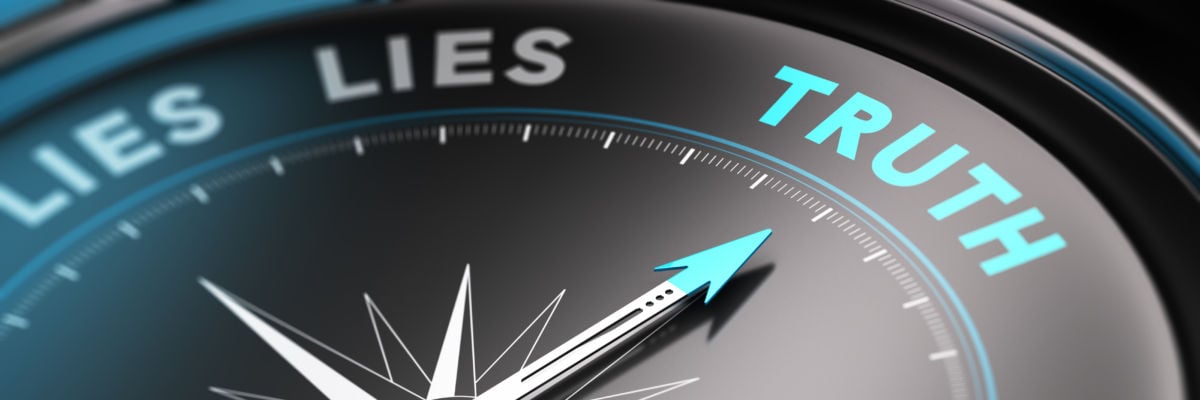
There is broad consensus among many Catholics today that since the Second Vatican Council, individuals are morally permitted to follow their consciences even if it means ignoring the objective truths of the law of God as taught by the authoritative magisterium of the Catholic Church. Dignitatis Humanae, a Vatican II document on religious freedom, seems to support this position:
All are bound to follow their conscience faithfully in every sphere of activity. . . . Therefore, the individual must not be forced to act against conscience nor be prevented from acting according to conscience, especially in religious matters. (DH 3)
If man is bound to follow his conscience at all times and cannot be forced to act contrary to it, the Council seems to be teaching the primacy of conscience over the demands of objective truth and the teachings of the Church. It appears that man has a moral right to be wrong. Is this what the Council meant by freedom from force? Did the Council mean that man’s conscience is autonomous and that man is free from the moral obligation to conform to the authority of the magisterium of the Church? The simple answer is no.
What Is Conscience?
The idea that man should never be forced to act contrary to or in accord with conscience does not mean that conscience is free from the demands of truth but that it is free from external coercion by human authority. In reference to actions in accord with or against conscience in religious matters, the Council continues, “Acts of this kind cannot be commanded or forbidden by any merely human authority.” In reference to civil authority, the document states that “if it [civil authority] presumes to control or restrict religious activity it must be judged to have exceeded the limits of its power.” The Council teaches that civil authorities must never infringe upon the right of every human being to act in accord with his conscience, provided that the just requirements of public order are observed (DH 3).
This teaching is based on the correct understanding of what conscience is: a specific judgment of the knowing power of the soul—that is, the intellect at work in practical moral situations. The intellect judges whether a particular choice, decision, or action in the past, present, or future is good or evil for the self. Conscience is the answer given by intellectual judgment to the question “What ought I to do and what I ought not to do?” As the Catechism of the Catholic Church explains, “conscience is a judgment of reason by which the human person recognizes the moral quality of a concrete act” (CCC 1796).
The judgment of the intellect that we consider “conscience” differs from other judgments of the intellect because of its focus. For example, my intellect may make a judgment about whether Peter denied Christ. This judgment is not a moral judgment; it is a historical one. If my intellect were to judge whether it was wrong for Peter to deny Christ, such a judgment would not be called conscience either. Even though it would be a moral judgment, it would not be a practical moral judgment—that is, it would not concern me. But if my intellect made a judgment about whether it would be wrong for me to deny Christ, it would be not only an intellectual and moral judgment but also a practical moral judgment of the intellect, and it would rise to the level of conscience.
The action of the intellect in judging practical moral matters, or conscience, is an innate faculty of human nature that man is bound to follow. Forcing man to act against conscience is forcing him to act against his nature.
Choosing the Good
A legitimate objection can be proposed: Perhaps the Council was referring to freedom from external force when it spoke of freedom of conscience. But when it states that this applies “in every sphere of activity” (DH 3), it seems to teach that man is exempt from the moral obligation to conform his conscience to objective truth. But this statement actually demonstrates man’s obligation to the truth.
Because conscience is a judgment of the intellect, it can be wrong—like any other judgment of the intellect. Conscience is not infallible. But man must still follow his conscience in all spheres of activity. It would be unreasonable to perform an action that the intellect has judged to be wrong, even if the judgment was incorrect. In other words, one is obliged not to do what one judges to be wrong.
It follows, though, that man must employ every reasonable means to ensure that his judgment on practical moral matters is right and true, because man’s happiness and authentic human freedom lie only in what is good and true. Man is obliged by nature to inform and enlighten his judgments to ensure that he chooses the good. If man makes incorrect judgments about matters of morality and chooses what is contrary to the good and true, then authentic human freedom is abused.
Vatican II’s decree on the modern world, Gaudium et Spes, taught that every man is obliged to obey the divine law. It tells us that “deep within their consciences men and women discover a law that they have not laid upon themselves and that they must obey.” This law, according to Dignitatis Humanae, is the “divine law itself—eternal, objective and universal” and is “the highest norm of human life” (DH 3). Adherence to this divine standard of morality determines what Gaudium et Spes calls “correct conscience.” According to the Council, man must seek out this divine law and conform his judgments to it.
Freedom in Truth
The Council also teaches what one might call the internal force of truth. Dignitatis Humanae makes it clear that no man is, by his very nature, exempt from the demands of objective truth:
All human beings . . . are both impelled by their nature and bound by a moral obligation to seek the truth, especially religious truth. They are also bound to adhere to the truth once they come to know it and to direct their whole lives in accordance with the demands of truth. (DH 2)
According to the Council, the moral obligation to the demands of truth rests in the fact that “truth can impose itself on the human mind by the force of its own truth.” Thus, the document states that “the sacred Council likewise proclaims that these obligations bind people’s consciences” (DH 1).
The Council’s teaching on conscience shows us clearly that man’s obligation to follow his conscience in every sphere of activity does not mean that man has a moral right to be wrong. Man is not morally free to follow his conscience while ignoring the truth. Man is, in fact, bound to form his conscience in accord with the objective truth of the divine law of God. In Dignitatis Humanae, the Council teaches that there is a “moral obligation of individuals and societies toward the true religion and the one Church of Christ” (DH 1). But is man morally obliged to conform his conscience to the teachings of the Catholic Church? Vatican II says yes.
The Sacred Tradition
Lumen Gentium tells us that the one Church of Christ, established and sustained by Christ here on earth, “constituted and organized as a society in the present world, subsists in the Catholic Church, which is governed by the successor of Peter and by the bishops in communion with him” (LG 8).
The Congregation for the Doctrine of the Faith, lead by Pope Benedict XVI (then-Cardinal Ratzinger), explained the phrase “subsists in” in the document Dominus Iesus:
The Second Vatican Council sought to harmonize two doctrinal statements: on the one hand, that the Church of Christ, despite the divisions which exist among Christians, continues to exist fully only in the Catholic Church, and on the other hand, that “outside of her structure, many elements can be found of sanctification and truth,” that is, in those churches and ecclesial communities that are not yet in full communion with the Catholic Church. But with respect to these, it needs to be stated that “they derive their efficacy from the very fullness of grace and truth entrusted to the Catholic Church.” (DI 16; cf. LG 15–16)
It is to this Church, the Council fathers professed, that the Lord Jesus entrusted the task of spreading his true religion to all the nations when he said: “Go therefore and make disciples of all nations . . . teaching them to observe all that I have commanded you” (Matt. 28:19–20).
This command of Christ is at the heart of the Council’s statement that “the Catholic Church is by the will of Christ the teacher of truth” (DH 14). Gaudium et Spes tells us that the teaching authority of the Church “is the authentic interpreter of divine law” (GS 50). The Church is the divinely appointed means of communicating the fullness of revealed truth and all the principles of the moral order that spring from nature. Hence, Dignitatis Humanae teaches us that “in forming their consciences the faithful must pay careful attention to the holy and certain teaching of the Church” (DH 14).
Vatican II did not teach that man’s conscience is independent either of the demands of truth or of the teachings of the Church. Man cannot be free from truth. He is compelled by his nature to seek truth, as taught by the Church, and to conform his conscience and his life to it.



